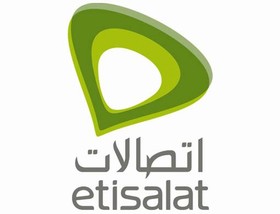Passports & Employers
By Samir Salama, Bureau Chief
Abu Dhabi: A senior official reiterated yesterday that private businesses and government institutions that withhold their employees' passports are breaking the law but admitted it is a common practice.
"The practice of retaining passports in the UAE is illegal in accordance with court rulings," Aref Mirza, director of the legal department at the Ministry of Labour, told Gulf News.
Mirza added that a worker, whose employer withholds his passport and refuses to return it, can quit without a notice period and demand a compensation for dismissal.
"Retaining workers' passports amounts to forcible work in violation of the International Labour Organisation's (ILO) Convention on the Abolition of Forced Labour, to which the UAE is a signatory."
Speaking of the ways of withholding passports, Mirza said they include denying access to the passport, making surrender of the passport a prerequisite for recruitment or forcing a worker to hand over the passport.
On why the Ministry of Labour's inspectors, who evaluate needs of companies for work permits, are counting workers of companies by the number of passports held in the workplace, Mirza said the practice is no longer in place and that his department advised companies that photocopies of passports are enough. "If an inspector wants to check the original passport, he can ask the worker involved to produce it," Mirza said, admitting that the Ministry of Labour "may have violated the law by keeping the passports of its expatriate staff."
Lieutenant General Shaikh Saif Bin Zayed Al Nahyan, Minister of Interior, has issued directives to all government departments to reinforce the fact that retaining the passport of any resident without a court order violates the law.
"A passport is a personal document that proves the identity of the holder, and the laws stipulate that the bearer must keep his or her passport and present it to the authorities concerned upon their request," Shaikh Saif, who was then undersecretary of the ministry, said in the circular dated December 25, 2002.
Courts have always ruled that passports must be returned to workers.
However, all ministries, including those of Finance and Industry, Interior, Labour and Social Affairs are retaining passports of their expatriate staff.
Some ministries keep passports on instructions of the Civil Service Department, others on directives from the Ministry of Finance and Industry, which demand that passports of cashiers must be retained.
Some employers argued they needed to retain their workers' passports for security reasons or to ensure they did not escape with the company's assets.
Others said the passports of employees are kept in a fireproof filing cabinet and they can recover them at anytime they want.
"Employers who fail to give workers their passports on request are in breach of trust. The offence carries a prison term of up to three years or a fine of up to Dh20,000," a legal consultant said.
Mohammad Ebrahim Al Shaiba of Al Bahr Advocates and Legal Consultants said a passport is given to the employer on trust to complete certain formalities and must be returned to the worker once these formalities are complete.

